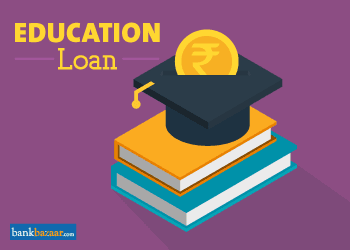An educational loan is a type of financial aid that is specifically designed to help students pay for the costs of their education, including tuition, fees, books, supplies, and other related expenses. Educational loans are typically offered by banks, credit unions, and other financial institutions, and may be backed by the government or private lenders.
There are several different types of educational loans available, including federal student loans, private student loans, and parent PLUS loans. Federal student loans are offered by the government and have fixed interest rates, while private student loans are offered by banks and other private lenders and may have variable interest rates. Parent PLUS loans are offered to parents of dependent students and are based on the creditworthiness of the parent borrower.
Educational loans are typically offered on a need-based or merit-based basis, and may require a credit check or cosigner in order to qualify. Repayment of educational loans typically begins after the borrower graduates or leaves school, and may be deferred while the borrower is in school or during other periods of hardship.
Benefits of Educational Loan
An educational loan is a type of loan that is specifically designed to help students pay for their education, including tuition, fees, books, and other education-related expenses. Here are some benefits of taking out an educational loan:
- Easy to qualify: Educational loans often have more flexible credit and income requirements than other types of loans, making it easier for students to qualify.
- Low interest rates: Educational loans generally have lower interest rates than other types of loans, which can save you money over the long term.
- Deferred repayment: Many educational loans have deferred repayment options, which allow you to postpone making payments until after you graduate. This can be especially helpful if you are struggling to find a job after graduation.
- Tax benefits: In some cases, you may be able to claim a tax deduction for the interest paid on your educational loan.
- No collateral required: Educational loans do not require collateral, which means you do not have to put up any assets (such as a car or house) as security for the loan.
- Flexible repayment options: Educational loan repayment plans are often more flexible than those of other types of loans, with options such as income-driven repayment plans that base your monthly payments on your income.
- Opportunity to pursue higher education: Without an educational loan, you may not have the financial means to pursue higher education, which can limit your career opportunities and earning potential. An educational loan can help you achieve your educational and career goals.
Eligibility criteria for the Educational Loan
Educational loans are typically offered to students who are seeking to finance their higher education. Eligibility criteria for educational loans can vary depending on the lender and the specific loan program. Some common eligibility criteria that may be considered by lenders include:
- Enrollment in an eligible educational institution: Most educational loan programs require that the borrower be enrolled in an eligible educational institution, such as a college, university, or trade school.
- Academic progress: Some loan programs may require the borrower to maintain a certain GPA or to make satisfactory academic progress in order to remain eligible for the loan.
- Financial need: Some loan programs may consider the borrower's financial need, as determined by the institution's financial aid office.
- Citizenship status: Some loan programs may have specific citizenship requirements, such as requiring the borrower to be a U.S. citizen or permanent resident.
- Credit histoHow does a Educational Loan works?
ry: Some loan programs may require the borrower to have a good credit history in order to qualify. - Collateral: Some loan programs may require the borrower to provide collateral, such as a co-signer or a valuable asset, in order to secure the loan.
- It is important to carefully review the eligibility criteria for any educational loan that you are considering in order to ensure that you meet the necessary requirements.
How does a Educational Loan works?
An educational loan is a type of financial aid that helps students pay for their higher education expenses, such as tuition, fees, and living costs. Educational loans are typically offered by banks, credit unions, and other financial institutions, and can be used to cover the cost of tuition, room and board, books and supplies, and other expenses related to pursuing a degree.
There are several types of educational loans available, including federal student loans, private student loans, and parent loans. Federal student loans are funded by the government and are typically available to students who demonstrate financial need. Private student loans, on the other hand, are funded by banks and other private lenders and are typically based on the creditworthiness of the borrower. Parent loans are loans that are taken out by the parents of the student and are typically used to help cover the cost of the student's education.
To apply for an educational loan, students typically need to fill out a loan application and provide information about their financial situation, including their income, assets, and expenses. The lender will then review this information and determine whether the student is eligible for a loan and, if so, how much they are able to borrow. Educational loans typically have to be repaid after the student graduates or leaves school, and may have interest rates and repayment terms that vary depending on the type of loan and the lender.

